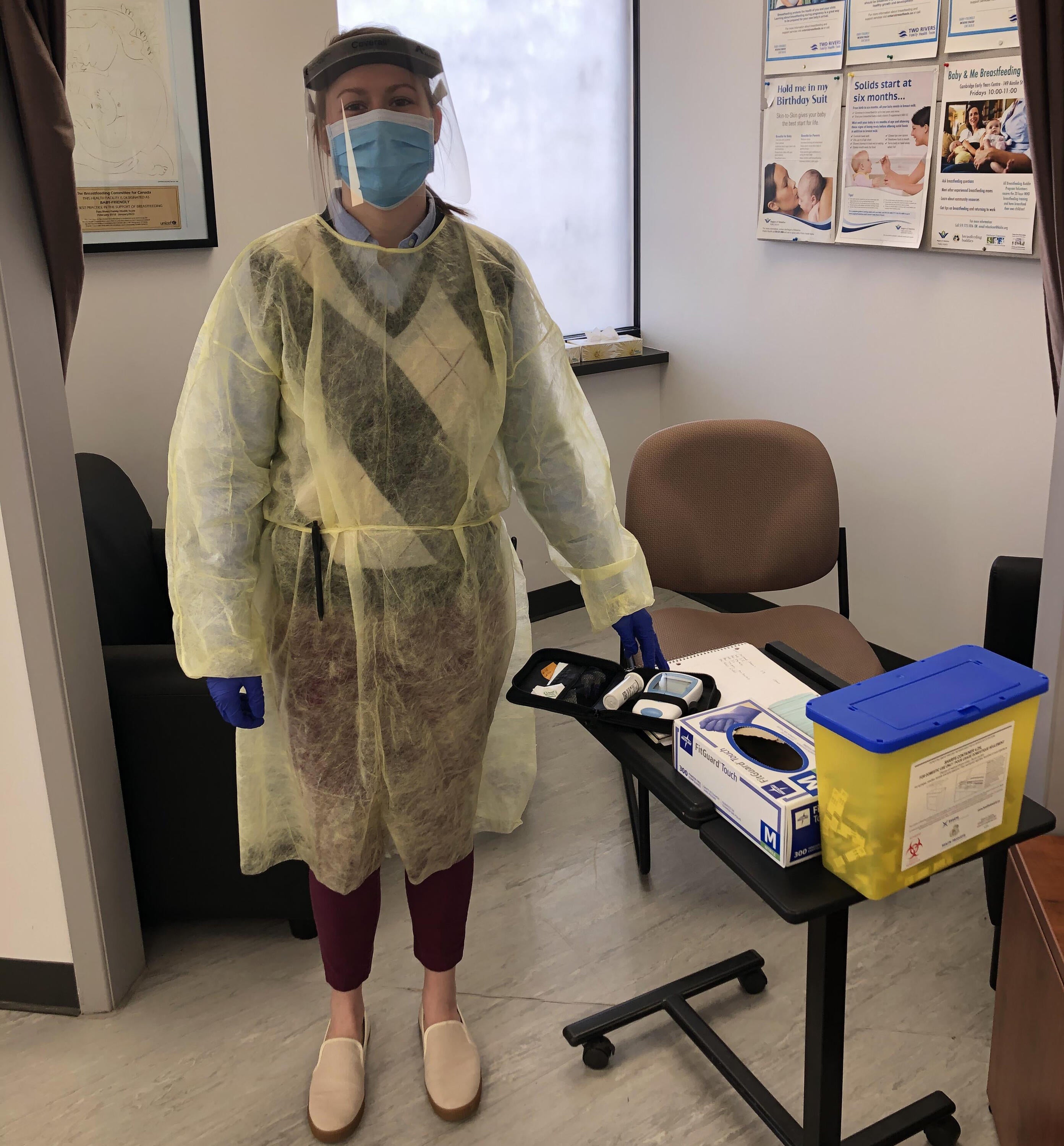
Drive-thru medicine
Dani Thomas (Rx2018) stands a good distance from a car in the parking lot of Two Rivers Family Health Team in Cambridge. The person inside has their window rolled down and Dani’s wearing a mask, asking them questions. It’s mid-May and still snowing.
The person in the car is one of family health team’s patients on warfarin, a blood thinning medication that requires regular and careful monitoring by a pharmacist. Dani, a pharmacist on the team, jots down notes from the discussion and takes a drop of blood from the patient’s finger to test their levels.
This drive-thru method is a new way to administer medicine and check-in on patients while many health offices remain closed for walk-in appointments.

Dani collecting a blood sample from a patient's finger as part of the outdoor clinic.
“COVID-19 has had a huge impact on my normal day-to-day at work,” she says. “I previously supported the team’s memory clinic and saw patients by appointment, doing thorough medication reviews and suggesting adjustments in therapy when they would be helpful.”
Because of the shift to prioritize essential services, Dani no longer sees patients in the office, and the memory clinic is temporarily suspended. Physicians continue to take appointments over the phone, and the team supports them as best they can. For medically necessary services, like the warfarin clinics, Dani’s helped develop new processes like the drive-in clinic they hold in the business’s parking lot. The first few weeks were rough because of the unseasonably cold start to spring, but she’s grateful that the weather’s starting to warm up.
“It’s been a struggle knowing I can’t always provide the most comprehensive care in these circumstances where I can’t see patients for in-depth reviews. After the social isolation policies ease, we’re also going to experience a swell with all our patients who had non-essential appointments that were pushed back.”

It has truly been a team effort managing COVID-19. Every single discipline in our team has been vital and we’ve really come together to help our patients. The changes in workflow took some adjusting to on my part, but it’s becoming familiar now. It’s also been inspiring to see how the community has united at this time – people dropping off supplies and little things like ear-savers to help us with wearing masks, showing thanks to their frontline workers.